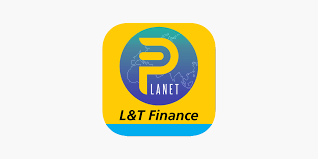For many people, the idea of borrowing money can feel overwhelming, especially when it’s their first time navigating financial products. A credit loan is one of the most common ways to access funds when extra money is needed for personal, household, or business expenses. Designed to meet different borrowing needs, these loans come with various repayment structures and Flexible Interest rates that can make them easier to manage.

Whether you are planning to cover an urgent cost or spread the expense of a major purchase over time, understanding the fundamentals of a credit loan can help you make a sound financial decision. This explains the key aspects of credit loans, from eligibility and interest rates to repayment strategies, ensuring first-time borrowers are equipped with the right knowledge before applying.
What is a Credit Loan?
A credit loan is a type of borrowing arrangement where a lender provides funds to a borrower for a specific purpose or general use. The borrower agrees to repay the amount, often in equal installments, over an agreed period. These loans can be secured, where collateral is required, or unsecured, which rely on the borrower’s creditworthiness.
The main benefit is that funds are provided upfront, giving borrowers immediate access to resources they can use for various needs such as home repairs, education, or consolidating existing debts.
Types of Credit Loans
Secured Credit Loans
These loans require an asset, such as property or savings, as security for the borrowed amount. Since the lender has collateral, the interest rates are often lower compared to unsecured options. However, failure to repay could result in losing the pledged asset.
Unsecured Credit Loans
Unsecured loans do not require collateral. Approval is based on credit history, income stability, and repayment capacity. These often come with slightly higher interest rates because they carry more risk for the lender.
Understanding Flexible Interest Rates
One of the important aspects to consider in a credit loan is the interest rate structure. Flexible Interest rates can change during the repayment period, either increasing or decreasing based on market conditions.
While this type of rate can be advantageous when interest rates drop, it can also increase monthly payments if rates rise. For borrowers with stable incomes and a willingness to manage variable payments, this option may provide savings over the loan’s duration.
Eligibility Requirements for First-Time Borrowers
Credit Score and History
A healthy credit score can improve approval chances and help secure better interest rates. First-time borrowers should review their credit reports to check for errors before applying.
Income and Employment
Steady income and consistent employment history signal to lenders that you are capable of repaying the loan. Proof of income is often required during the application process.
Debt-to-Income Ratio
Lenders assess how much of your income is already committed to debt repayments. A lower ratio indicates better financial stability and may result in easier approval.
How to Apply for a Credit Loan
Step 1: Assess Your Needs
Before applying, decide how much money you need and what it will be used for. Borrowing more than necessary can lead to higher repayments and unnecessary interest costs.
Step 2: Compare Loan Options
Look at repayment periods, fees, and interest rate types. Whether you choose fixed or flexible rates, make sure the terms fit your financial situation.
Step 3: Prepare Documentation
Commonly required documents include proof of identity, address, income, and possibly existing debt details. Having these ready can speed up the application process.
Step 4: Submit Application and Await Approval
After submitting, the lender will review your application, assess your eligibility, and inform you of the decision.
Repayment Strategies for First-Time Borrowers
Choose the Right Tenure
A shorter repayment term means higher monthly payments but lower total interest. A longer term lowers monthly payments but increases overall interest paid.
Pay On Time, Every Time
Timely payments help maintain a good credit score and avoid late fees. Setting up automatic payments can reduce the risk of missing due dates.
Make Extra Payments if Possible
Paying more than the minimum can reduce the outstanding balance faster and decrease total interest over the loan period.
Mistakes to Avoid When Taking a Credit Loan
- Borrowing more than you can comfortably repay
- Ignoring the impact of Flexible Interest rates on long-term costs
- Overlooking additional charges like processing fees or prepayment penalties
- Not reading the loan agreement carefully before signing
Benefits of Credit Loans for First-Time Borrowers
- Immediate access to funds for personal or emergency needs
- Predictable repayment schedules for fixed-rate options
- Opportunity to build or improve credit history with timely payments
- Flexibility to choose between secured and unsecured types
Conclusion
For first-time borrowers, understanding the essentials of a credit loan can make the borrowing process far less intimidating. Knowing how repayment terms, eligibility factors, and Flexible Interest rates work ensures that you choose an option that fits your financial needs without unnecessary risk.
By planning carefully, comparing offers, and avoiding common mistakes, you can use a credit loan to achieve your goals while maintaining financial stability. As with any financial decision, being informed is the best step toward making borrowing work in your favor.